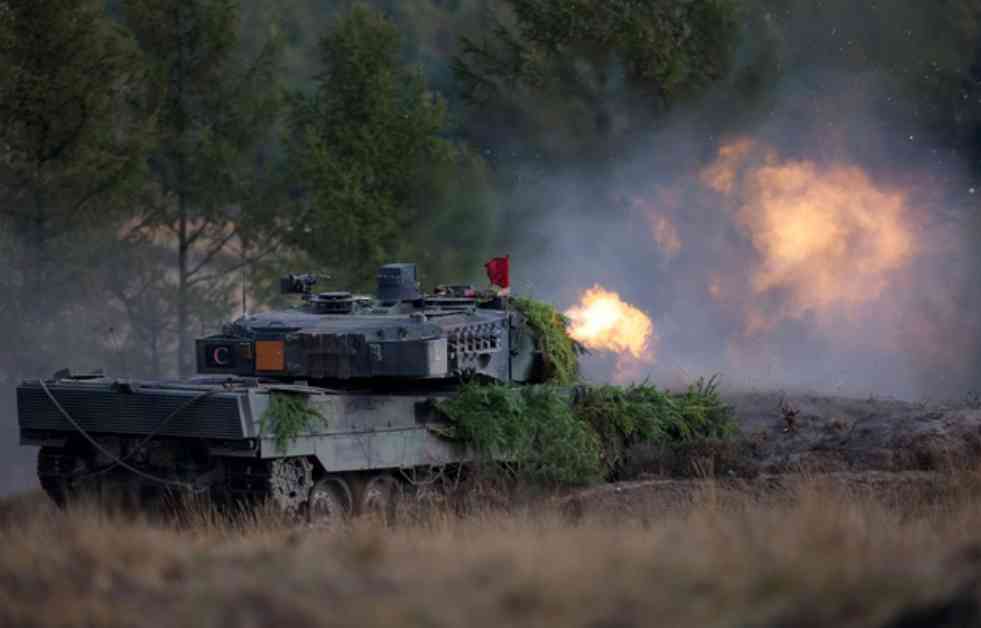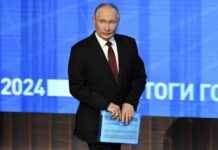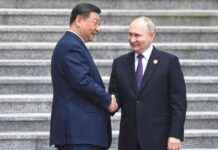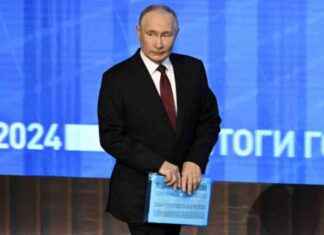European Defense Stocks Surge Amid Rising Military Spending
The escalating tensions surrounding Ukraine have not only captured the attention of world leaders but have also had a significant impact on the stock market, particularly in the defense sector. On Monday, share prices of European defense companies experienced a notable surge as London and the European Union announced plans to increase military spending in response to the uncertainty surrounding the United States’ commitment to Ukraine and NATO.
BAE Systems, a prominent defense company, saw its stock prices soar by an impressive 14%, contributing to London’s benchmark FTSE 100 index reaching a new record high. This surge in share prices is just the latest in a series of increases that have been observed in recent months, reflecting the growing concerns over global security.
The French defense group Thales and its German counterpart Rheinmetall also experienced significant gains, with their shares rising by 15% and 14%, respectively, in afternoon trade. Analyst Neil Wilson from TipRanks noted that “Europe is rallying round Ukraine, and it’s hard to see defense stocks not enjoying years of orders,” highlighting the market’s response to the geopolitical climate.
European Commission Urges Increased Military Spending
European Commission chief Ursula von der Leyen emphasized the urgency of reinforcing Europe’s defense capabilities as leaders from the continent convened in London for crisis talks regarding Ukraine. Von der Leyen stated, “We urgently have to rearm Europe,” underscoring the critical need for heightened military preparedness. She further stressed the importance of increased spending to ensure that Europe is well-equipped to face potential threats, urging leaders to “prepare for the worst.”
These sentiments were echoed by British Prime Minister Keir Starmer, who recently pledged to boost UK defense spending to 2.5% of the economy by 2027. Meanwhile, in Germany, the two parties vying to form the next government have outlined plans to allocate hundreds of billions of euros towards defense and infrastructure once in power. These commitments have not only bolstered investor confidence but have also propelled the DAX to a record high, with shares in various sectors, including carmakers, seeing significant gains.
Market Trends and Global Impact
As the stock markets reacted to the escalating tensions and military spending announcements, investors worldwide closely monitored the developments. In the United States, Wall Street opened higher, with a particular focus on the impending tariffs targeting Mexico, Canada, and China. President Trump’s confirmation of tariffs on these countries’ products, coupled with the uncertainty surrounding potential trade deals, has generated significant market volatility.
Analyst Patrick O’Hare from Briefing.com highlighted the market’s anticipation of potential tariff relief for Canada and Mexico, based on remarks from Treasury Secretary Scott Bessent and Commerce Secretary Howard Lutnick. This optimism contributed to a positive market sentiment, with investors closely watching for any updates on the tariff situation.
In Asia, stock markets experienced varied movements, with a focus on Chinese stimulus packages and the looming US tariffs. Chinese stocks received a boost following data indicating growth in manufacturing activity, while Hong Kong saw an uptick in market activity, including the successful IPO of Mixue Group. The cryptocurrency sector, which had been volatile in recent days, also saw some stability following President Trump’s announcement regarding a new US “strategic reserve.”
As global markets continue to respond to geopolitical tensions and economic shifts, investors are navigating a landscape fraught with uncertainty. The interconnectedness of political events, military actions, and economic policies underscores the intricate relationship between world affairs and financial markets, shaping investment decisions and market trends.
The article ends here.

















